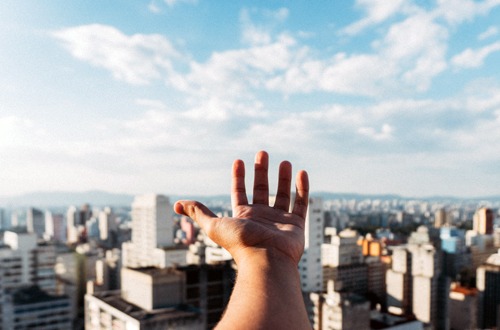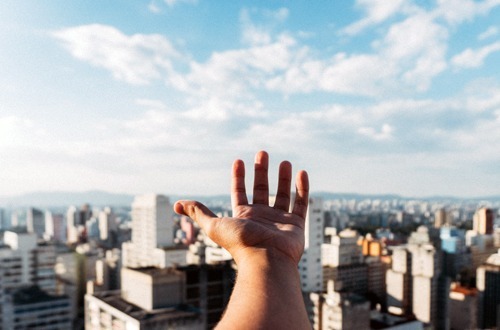
What price are you willing to pay for success? For many entrepreneurs the answer is everything – sometimes even their sanity. Entrepreneurs are more susceptible to mental health issues and anxiety, says entrepreneurship expert, Rick Ed in an SME South Africa article where he spoke about the dark side of entrepreneurship.
This is because being an entrepreneur is stressful, from the pressure to be good at everything, making decisions that impact others, the fear of failure and keeping the company afloat financially. This can be compounded by lack of sleep, insufficient exercise and a poor diet.
Whether it’s what in startup circles is referred to as the “trough of sorrow”, which according to a Forbes article is a “deep period of malaise that can sometimes follow a significant setback”, or at worst depression, there is little doubt that entrepreneurship can take a toll on mental health.
While mental health is still often not spoken about, there are many entrepreneurs who have bravely spoken out about their personal struggles.
11 Entrepreneurs – from Oprah Winfrey to Elon Musk – get real about the dark times.
“You need to decide what price you are willing to pay for your entrepreneurial dreams. This journey involves the sacrifice of your stability, your security and sometimes even your sanity.” – Katleho Tsoku (CEO of Spark South Africa and SHE Curator)
In 2009 at the age of 25, Tsoku opened up an upmarket cosmopolitan restaurant, Bliss Lounge, at the trendy 44 Stanley lifestyle centre in Milpark. But 27 months later the business had to close its doors which marked a particularly difficult time for Tsoku, according to an MBWorld.co.za article.
“All we need is the commitment to get enough sleep. Take time to recharge our mental and emotional batteries, put away our phones and laptops and tablets regularly, and try to introduce some stress-reduction tools into our lives.” – Arianna Huffington (Huffington Post founder)
In 2007, Huffington had pushed herself so hard that she collapsed from exhaustion, breaking her cheek on her desk as she fainted. She was then forced to take time off and used that time to think about how her life should change, according to an article on Financial Times. She decided to get more sleep.
“It taught me to never again—never again, ever—put all of your hopes, expectations, eggs in the basket of box office. Do the work as an offering, and then whatever happens, happens.” – Oprah Winfrey (Billionaire media proprietor, best known for her talk show, The Oprah Winfrey Show)
In 1998, after the failure of the film Beloved at the box office, Winfrey described that period as a “long plunge into food and depression.” Oprah decided she needed to make some big changes, she says in an interview with Vogue magazine.
‘Take the pain and make sure you really care about what you’re doing.’ – Elon Musk (South African-born business magnate, founder of Tesla, SpaceX)
Early in August this year, Musk spoke candidly in a series of tweets about stress and his mental health during his early career and now, according to a Daily Mail article, as a result of an array of personal and financial challenges, including the financial challenges after pouring his entire personal savings into Tesla in 2010.
“The desire and drive to keep the business going started to fade. Waking up in the morning became difficult. I felt like I had failed myself and my family. Entrepreneurship can be a long, difficult, dark and lonely place. You need to be prepared emotionally and prepare those around you.” – Langalakhe Nxumalo (Founder of Ceracure)
After leaving his full-time job in 2011, Nxumalo suffered from depression while trying to launch his business and knows all about the emotional rollercoaster of getting a business venture off the ground.
“Overall, entrepreneurship has unique challenges. Money, team building, legal issues, product development snafus and more. This causes lots of stress. This stress breeds loneliness as we have few people, if anyone, we can turn to for help and to discuss.” – Ramon Ray (founder of SmartHustle.com)
About five years ago, Ray was fired from the United Nations, with only a few thousand dollars in the bank. Those were stressful and dark days he says in an interview on Entrepreneurmag.
“Well, I was sad to let [the business] go. I had such a big vision and to see it all come tumbling down was nerve-wrecking to say the least. I wanted to go and hide.” – Michelle Okafor (Founder of Michelle Okafor African Designs)
Okafor started the business with her savings but in mid 2015, after three years in business, she told SME South Africa in an interview, she took the difficult decision to close down her business and return back to full time employment. She said despite the difficulty of the decision, she knew it was one that had to be made, not only for herself, but also for her employees.
“My own experience has made me realize that this imbalance is no way to live the startup life, and, in fact, it’s detrimental to this kind of work. The only way I survive the dark periods is by constantly renewing myself and my perspective. Starting over is part of the process of starting up. That’s something those in the entrepreneurial community should understand better than anyone else.” – Brad Feld (Co-founder of the Foundry Group and Techstars)
In the 1990s, Feld had just co-founded Feld Technologies, a software company, and while the company did well, the emotional toll was significant, according to Fortune magazine.
“The dark cloud was over my head and I was starting to suffocate and desperately needed change. My passion for what I was doing was slowly dying.” – Puseletso Modimogale (Founder of W.E.Y and business mentor at The Hope Factory)
By the age of 34, Modimogale, had suffered a number of crippling business and personal setbacks such as business contracts that ended, an emotionally and financially straining business and two miscarriages. She says in an article on Startup Picnic, that despite living what some might think is the “entrepreneurial dream”, she suffered from depression in both her success and failures.
“There is a huge amount of pressure as a founder to never show weakness and to be the cheerleader in all internal and external situations. The world can be falling down around you — and most of the time when you’re running a company, it is — and you have to be strong, confident, and optimistic. Failing is terrifying, and so is looking stupid.” – Sam Altman (President of Y-Combinator)
Altman, who works with many young entrepreneurs, wrote a blog post addressed to founders dealing with depression and anxiety.
“So please, founders, I beg of you. When it feels as though there’s no hope left, please ask for help. Ask for it directly and without shame. Talk to your family, investors, lawyers, mentors, friends, or even enemies. Just talk to someone. Talk openly; be candid and unafraid to reveal your struggles. I know that sometimes you just want to run face first into a wall before asking for help. Stop it. I know that sometimes you literally want to go into a fetal position and hide from the world. Please don’t.” – Sean Percival (Partner at 500 Startups)
Percival fell into depression after the failure of his e-commerce startup, Wittlebee, according to a Business Insider article.






